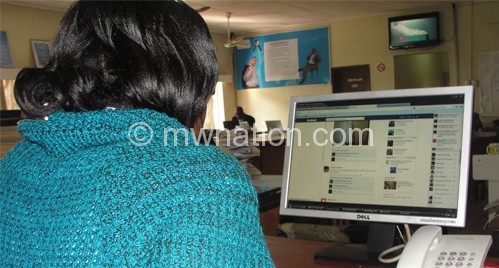Study rates Malawi poorly on ICT penetration
A latest report by a regional information, communication and technology (ICT) policy watchdog has rated Malawi among 10 eastern and southern Africa (ESA) countries with the poorest ICT penetration.
The countries were, among others, measured for competitiveness in ICT legal and practice framework and promotion of the right to freedom of expression, access to information and encouraging innovation and socio-economic growth.

The study conducted by the Uganda-based Collaboration on International ICT Policy for East and Southern Africa (Cipesa), whose findings were released on Friday at the 2017 Forum on Internet Freedom in Africa (Fifa) in Johannesburg, South Africa, also focused on the economic aftermath which ESA countries are currently reeling under due to persistent government-backed Internet shutdowns, surveillance, filtering and censorship mainly as a result of hate speech, fake news, child and women rights and terrorism.
However, according to the report, Malawi, which has four operational telecommunication service providers, including Airtel and Telekom Networks Malawi (TNM), has the lowest penetration rate of mobile services currently at only 36 percent, while the local Internet penetration rate stands at 9 percent.
In contrast, Zimbabwe, Tanzania and Zambia have an improved mobile penetration rate of 95; 83 and 73 percent, respectively, and a corresponding Internet penetration rate of 50; 40 and 31 percent.
The development comes a few months after government announced the completion of a $20 million (K14 billion) World Bank project called regional communications infrastructure programme-Malawi project (RCIPMW) provided by SimbaNet, a price-competitive internet service provider (ISP).
The project is being supported by the Department of E-government in the Ministry of Information and Communications Technology through the Public Private Partnership Commission (PPPC) aimed at improving Internet connectivity in the country.
In an earlier interview with The Nation PPPC’s chief executive officer (CEO) Jimmy Lipunga said government will benefit from the transaction as a beneficiary.
In a separate interview, SimbaNet cable and plant manager Mark Chikoko argued that the connection initiative will trickle down to Malawian Internet users in terms of reduced charges.
The countries covered in the study are Botswana, Burundi, Democratic Republic of Congo (DR Congo), Ghana, Kenya, Malawi, Tanzania, Uganda, Zambia and Zimbabwe. n





